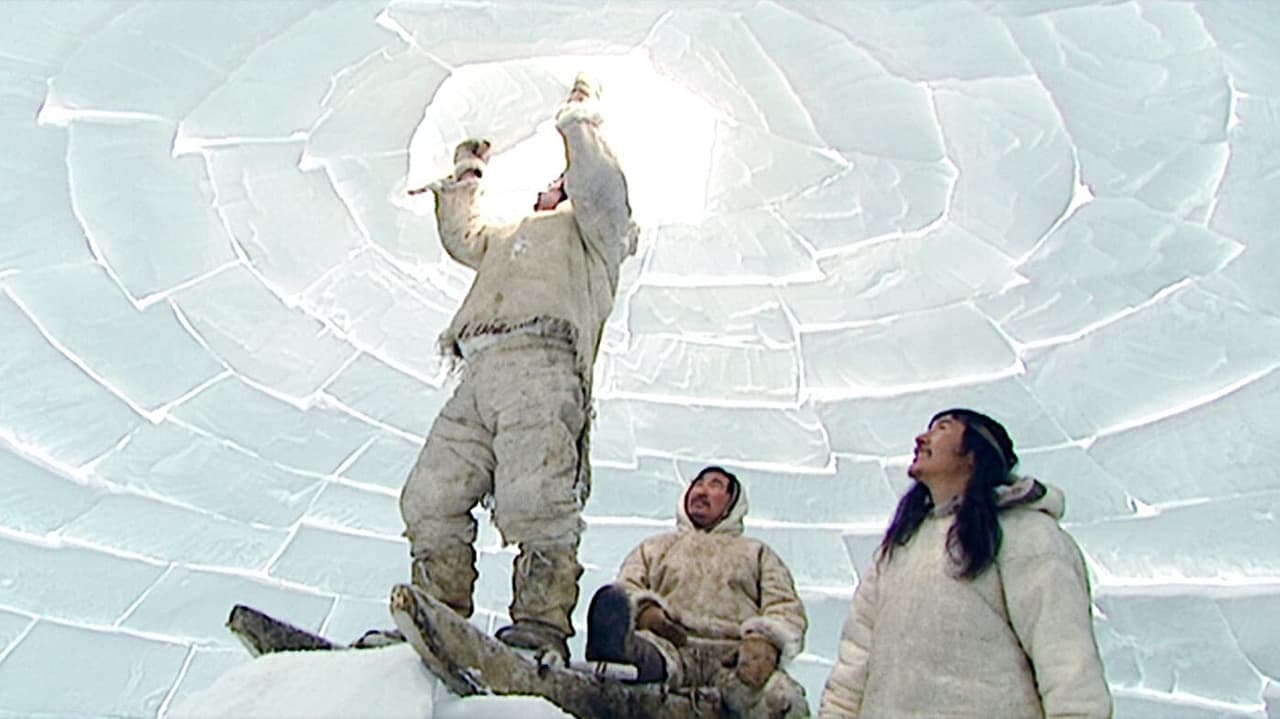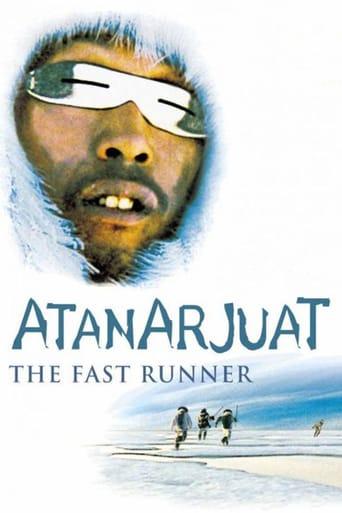Tetrady
not as good as all the hype
GrimPrecise
I'll tell you why so serious
Matialth
Good concept, poorly executed.
Konterr
Brilliant and touching
Nazi_Fighter_David
It tells a legend from the two thousand years ago, about Atanarjuat, who incurs the jealous enmity of Oki when he marries Atuat… Oki kills Atanarjuat's brother, but Atanarjuat escapes in a stunning sequence, running naked across the ice floes, outstripping his pursuers until, his feet torn and bloody, he is taken in by a friendly sorcerer… The motion picture concedes nothing in the way of authenticity, with sequences that show in realistic detail the training of sled-dogs, cutting up animal carcasses or making an igloo… But the convincing ethnographic elements only serve to intensify the compelling story and characters, which take on a truly epic dimension… If the purpose of a national cinema is to represent the culture of the peoples it belongs to, then "Atanarjuat" achieves this victoriously, both the content of the film and the manner of its telling being wholly specific to Canada, yet in the process achieving a universal appeal
Terrell-4
"Evil came to us like death and we just had to live with it," says the legend teller. The Fast Runner is a powerful, fascinating film about an Inuit community of less than two dozen people, living their lives above the Arctic Circle anywhere from a thousand to a couple hundred years ago. Their world is made up of vast frozen tundra and endless snow combined with the claustrophobia of living together in such close quarters that there are no secrets. Their survival and happiness depend on everyone living together in harmony. When the leadership of this group is assumed under questionable circumstances, when a rival is humiliated and when power is worked unfairly, evil descends on the group. The feelings of envy, ambition and lust which lead to murder may be familiar to anyone in any culture; how this plays out in such a small group of people and in such cold, severe conditions turns this movie into a unique and engrossing experience. Saari is the leader of the group. He has a son, Oki (Peter-Henry Amatsiaq), and a daughter, Puja (Lucy Tulugarjuk). Tulmaq, now dead, had been a rival for leadership long ago, but had been humiliated until his spirit was broken. He had two sons, Amaqjuaq, who was called the Strong One, and Atanarjuat (Natar Ungalaaq), who was called the Fast Runner. Oki has grown to be a bully. As a child he and Ayuat (Sylvia Ivalu) were promised to each other, but now she and Atanarjuat have fallen in love. Oki and Atanarjuat settle the issue in a brutal fight. In front of the group, they stand facing each other. Then they take turns deliberately hitting each other on the side of the head as powerfully as they can. The one who fails to get up loses, and that is Oki. From then on we see how Oki's resentments and envy, and his sister's own trouble-making, lead to murder. By the time this small community casts out evil, Amaqjuaq is dead and Atanarjuat has barely escape with his life, running naked over ice fields and through pools of icy water, pursued by three killers, Oki in the lead. If nothing else does, this race against death will stay with you. Atanarjuat survives and finally returns to the group, where justice is meted out. This film puts us in the middle of this tiny community. We see how they live, how they hunt, how they survive, they way they build an igloo, what they butcher and how they eat, how they dress. More powerfully, we see how they must adjust and accommodate. This is a community so small that resentments must be settled early, where humor can be direct, where intimacy is a part of the life; and where jealousy, envy, trouble-making, love and passion are the same as everywhere else. "I can only sing this song to someone who understands it," the legend teller says at the beginning of the movie. The story is long (172 minutes), the language, Inukitut, is strange, the environment is frigid and unforgiving. But the people come from the same pool of humanity as we do. Give this film half a chance and you'll find you understand the song.
lelia-agostinho
Atanarjuat is a beautiful film. To capture images in the ice, with so much light reflecting all over can be complicated, but Atanarjuat is a movie where this becomes an art. Against the white bright snow landscape people become really significant. It's amazing how we people can live in such a place. Atanarjuat came to the little village (3,500 inhabitants) where I live, in Alentejo, Portugal, about 3 years ago, but I'll never forget it. This film expanded my perception on how we can be human in so many different ways and in so many different places. The cold, the white, the snow and the light make a wonderful dream. The most incredible for me is how the people who made the movie were able to show the amazing diversity of beauty in what could be said a rather monotonous landscape. The story is so rooted in it and so universally human, at the same time, that this film is for all of us.
freimarck16
This is a beautiful example of passionate film-making, and mesmerizes from the beginning. As an American, I was COMPLETELY ignorant of the Inuit, and decided to rent this film mostly due to word of mouth. Stick it out through the first half hour: getting past the difficult names does take some effort. But it's awesomely rewarded by the next two hours. The landscape will take your breath away, and the story will hold you captive. Underneath the sheer artistry, closely examine the fight against "evil-spirits:" it's even relevant to today's struggle against the so-called powerful. What struck me particularly was how naturally the characters understood the razor-thin balance between life and starvation.Simply put, I was breathless after seeing this film.I could recommend this film on the cinematography alone. Adding in the screen writing, acting, and the simply groundbreaking aspect of Inuit film-making, you cannot put off seeing this film.

